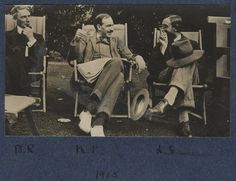 Jonathan Kirschner in Boston Review:
Jonathan Kirschner in Boston Review:
On September 9, 1938, John Maynard Keynes, fifty-five years old and the most famous economist in the world, read his essay “My Early Beliefs” to the Memoir Club, a circle of Bloomsbury Group friends who gathered occasionally to discuss the private reflections of its members. Keynes took the opportunity to revisit the philosophical principles of his confidants in the youthful exuberance of their twenties, “our mental history in the dozen years before” World War I. The rich, dazzling memoir, published posthumously at Keynes’s request (and subsequently included in his Essays in Biography), is well described by biographer Robert Skidelsky as “a key document for understanding his life’s work.”
The Keynes of “My Early Beliefs” was no longer a young man; recovering from a major heart attack, he read to the group reclining on a sofa to conserve his energy. Moreover, 1938 was not 1910; the intervening decades, shattering a long period of peace and prosperity, were characterized by war, disorder, and depression. Armed with this melancholy hindsight, Keynes would chastise his youthful cohort: “as the years wore on towards 1914, the thinness and superficiality, as well as the falsity of our view of man’s heart became, it now seems to me, more obvious.” And as the Memoir Club assembled that evening, German troops were massed on the Czechoslovakian border, and Neville Chamberlain would soon climb aboard an airplane for the first time in his life, that he might reason with Adolph Hitler. This context surely informed Keynes’s retrospective lament, “we were not aware that civilisation was a thin and precarious crust” layered atop a cauldron of horrors simmering just below the surface.
More here.
